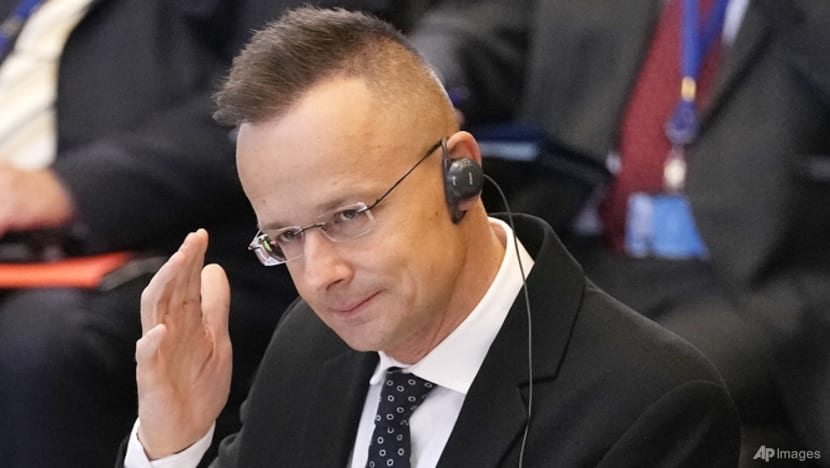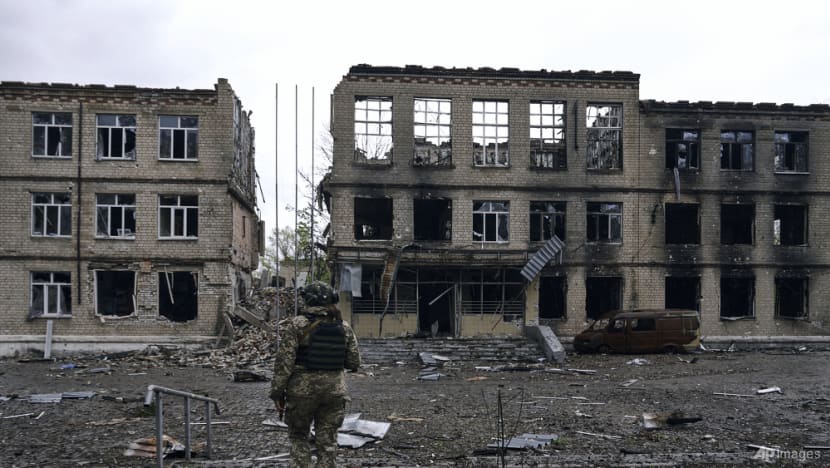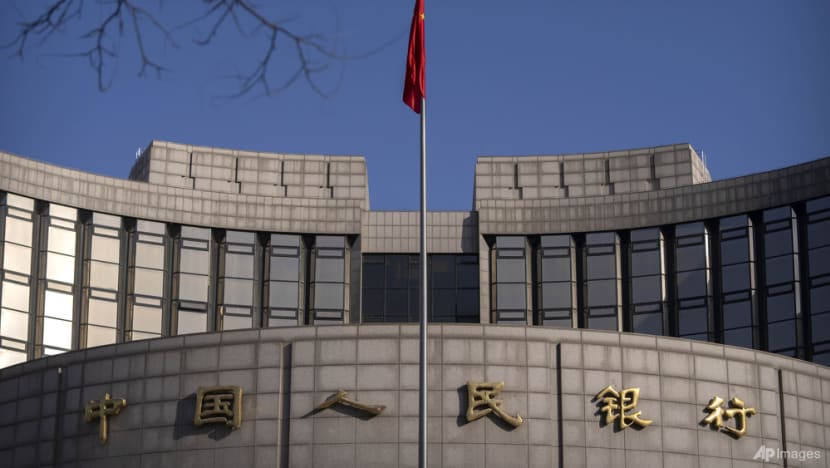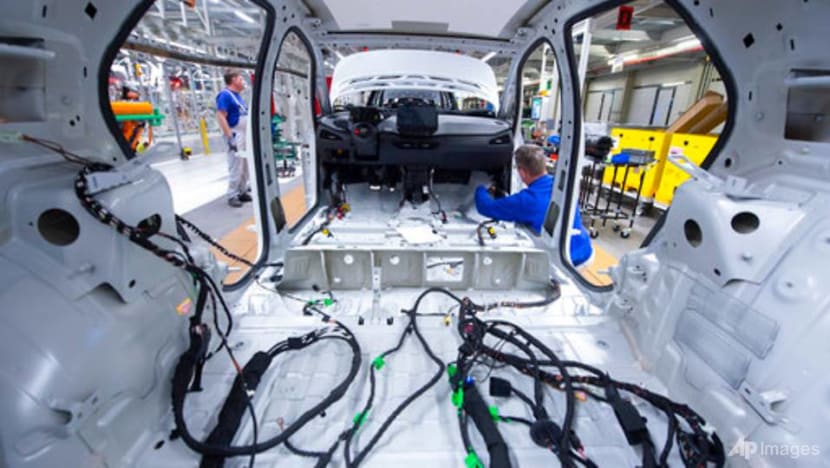Hungary maintains 'pragmatic relationship' with Russia for energy needs, condemns Ukraine war: Foreign minister
Hungary cannot be compared to other eastern European countries who have successfully weaned themselves off Russian energy sources due to its unique geographical location and infrastructure, said Minister of Foreign Affairs and Trade Peter Szijjarto.

SINGAPORE: Hungary has always had a pragmatic relationship with Russia in order to secure its energy needs, one which it has maintained even during the Ukraine war, its Minister of Foreign Affairs and Trade Peter Szijjarto said on Wednesday (Apr 26).
He added that Hungary cannot be compared to other eastern European countries who have successfully weaned themselves off Russian energy sources, due to its unique geographical location and infrastructure.
The channels of communication with Russia must be kept open in order for any chance of a peaceful resolution to the Ukraine war, Mr Szijjarto told CNA’s Asia Now.
PRAGMATIC RELATIONSHIP WITH RUSSIA
“We have always had a pragmatic relationship with Russia,” said Mr Szijjarto.
“We are a small landlocked country in central Europe. We are located close to Russia. It's easy to judge the situation from the other side of the ocean or from thousands of kilometres away. But for us central Europeans, Russia is a fact and will be a fact in the future as well."
He said that Hungary is unable to supply itself with adequate amounts of energy without turning to Russian sources, with more than 80 per cent of the country’s natural gas coming from there.
“For us, stopping the war is the most important issue. But when it comes to the relationship with Russia in the energy field, you have to be aware that if we cut the Russian sources, the other parts of physical infrastructure are not enough to supply the country with the necessary volume of gas or oil,” he said.
Cooperating with Russia hence keeps Hungary “on the safe side”, said Mr Szijjarto.
He said the circumstances of other eastern European countries are different due to their geographical locations and infrastructural levels, and hence cannot be compared to Hungary’s position.
“It's very important to understand that the issue of energy supply is not an ideological issue. The issue of energy supply is not a matter of political taste. It's purely physical. You need a source and you need a pipeline,” said Mr Szijjarto.
He added that it is crucial to maintain communication with Russia, in finding a resolution to the conflict. “If you close the channels of communication, you basically give up the fundamental hope for peace.”
Noting that Hungary is a member of both the North Atlantic Treaty Organization (NATO) and the European Union (EU), Mr Szijjarto said: “We are loyal members of both organisations, but we have to stay on the ground of common sense and rationality.”
HUNGARIAN STAKE IN THE UKRAINE WAR
As a country neighbouring Ukraine, the war has had “severe and immediate impacts” for Hungary, noted Mr Szijjarto.
“It is not widely known, but there are Hungarian people dying in this war, given the fact that we have a significant Hungarian community living in the western part of Ukraine, some 150,000 Hungarians,” he said.
Many are citizens of Ukraine who have been mobilised to fight for the Ukrainian army, and die on the frontlines, said Mr Szijjarto.

“We have been condemning the war from the very beginning. We stand up for the territorial integrity and sovereignty of Ukraine. But we do believe that the best way to save lives, or the only way to save lives, is to come to an immediate ceasefire and immediately start discussions about how to make a long-term peace agreement in the region,” he said.
He added that the international community has a duty to save the lives of people in Ukraine, with many dying on a daily basis. “We have to stop that, and you cannot stop it with further deliveries of weapons.”
Mr Szijjarto said his country’s “challenging relationship with Brussels” did not originate from the war, but instead after his party, Fidesz, took over in 2010.
“We are a right Christian democratic patriotic government, which considers national interest very important, and we are a successful government. And this combination cannot be digested by Brussels, because Brussels represents the international liberal mainstream.”
“And the international liberal mainstream … simply hate what we are doing in Hungary. They hate that we are successful, but we are elected by the Hungarian people.”
ON CHINA
Mr Szijjarto said that Hungary respects China’s peace plan for the Ukraine war, which he said forms a basis for negotiation and brings the world closer to peace.
When it comes to EU-China relations, Hungary opposes decoupling, and instead favours the maintaining of connectivity, said Mr Szijjarto.
“We are in favour of a rational, pragmatic, and respect-based cooperation with China. Because if you break the relationship between China and the European Union, you cause huge damage to the European economy, because the European economy is dependent on the Chinese economy in many industries and many areas,” he said.
There is more than €870 billion (US$960 billion) worth of trade between the EU member states and China, noted Mr Szijjarto. China was also Hungary’s largest investor last year.

Mr Szijjarto said that French President Emmanuel Macron’s recent statements about the strategic autonomy of Europe with regards to Taiwan, were “refreshing”.
“It's great that he speaks about cooperation between China and Europe. We do not want either the European Union or the NATO to become an anti-China bloc, because that would be really bad,” he said.
He added that Hungary follows the “One China” principle.
Mr Szijjarto said that Chinese firms are “respected investors” in his country, who contribute to the growth of the Hungarian economy, and the wider European economy as well.
He cited the example of Chinese companies who aim to produce electric batteries for electric cars, which are made by western European companies.

“I've been in touch with Chinese investors for the last nine years. And there was not a single occasion when a Chinese investor, or the Chinese state itself, would attach any kind of political expectation to an investment,” noted Mr Szijjarto.
“So it's a purely rational, mutually beneficial economic cooperation, which we respect a lot.”














